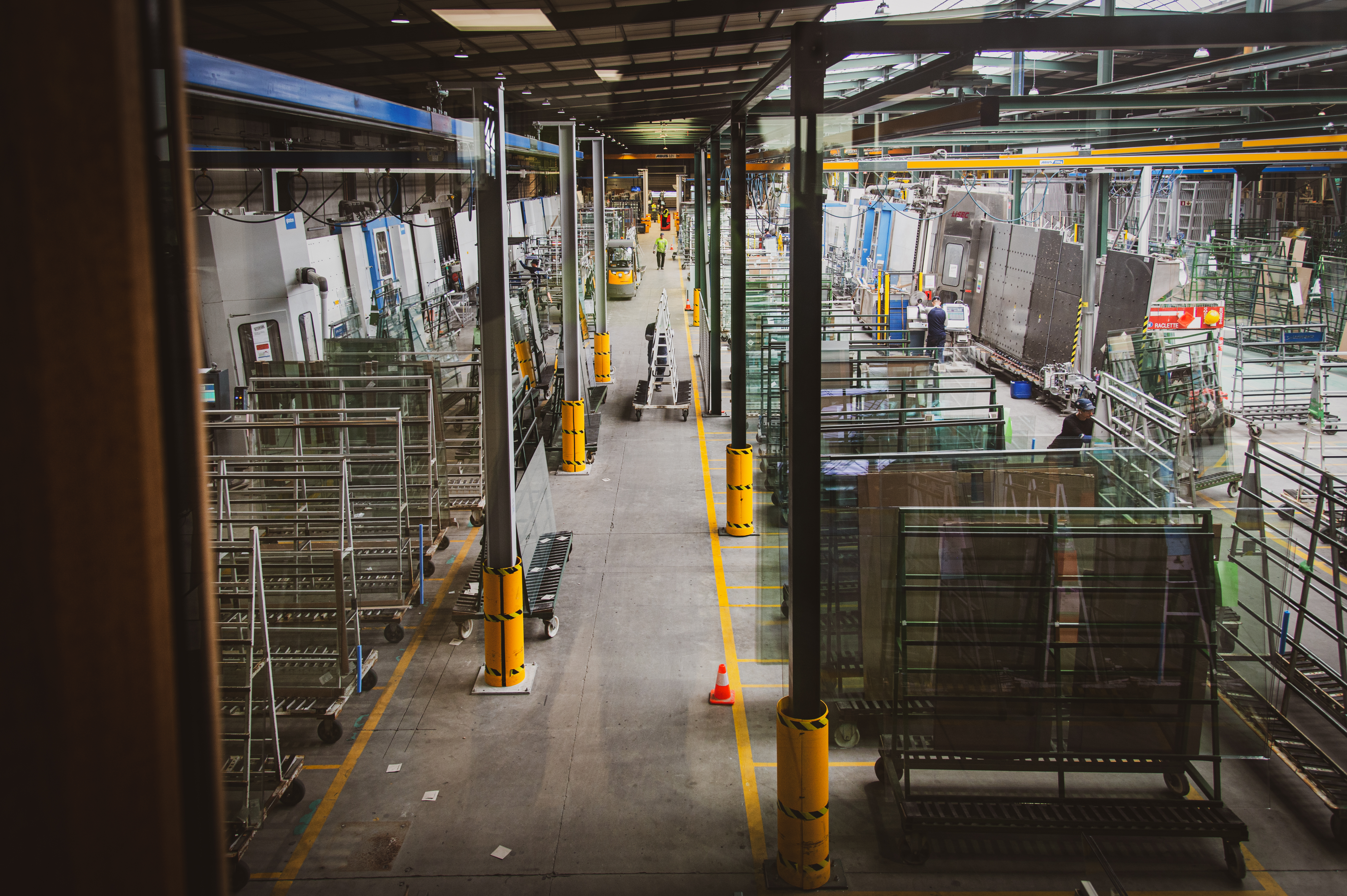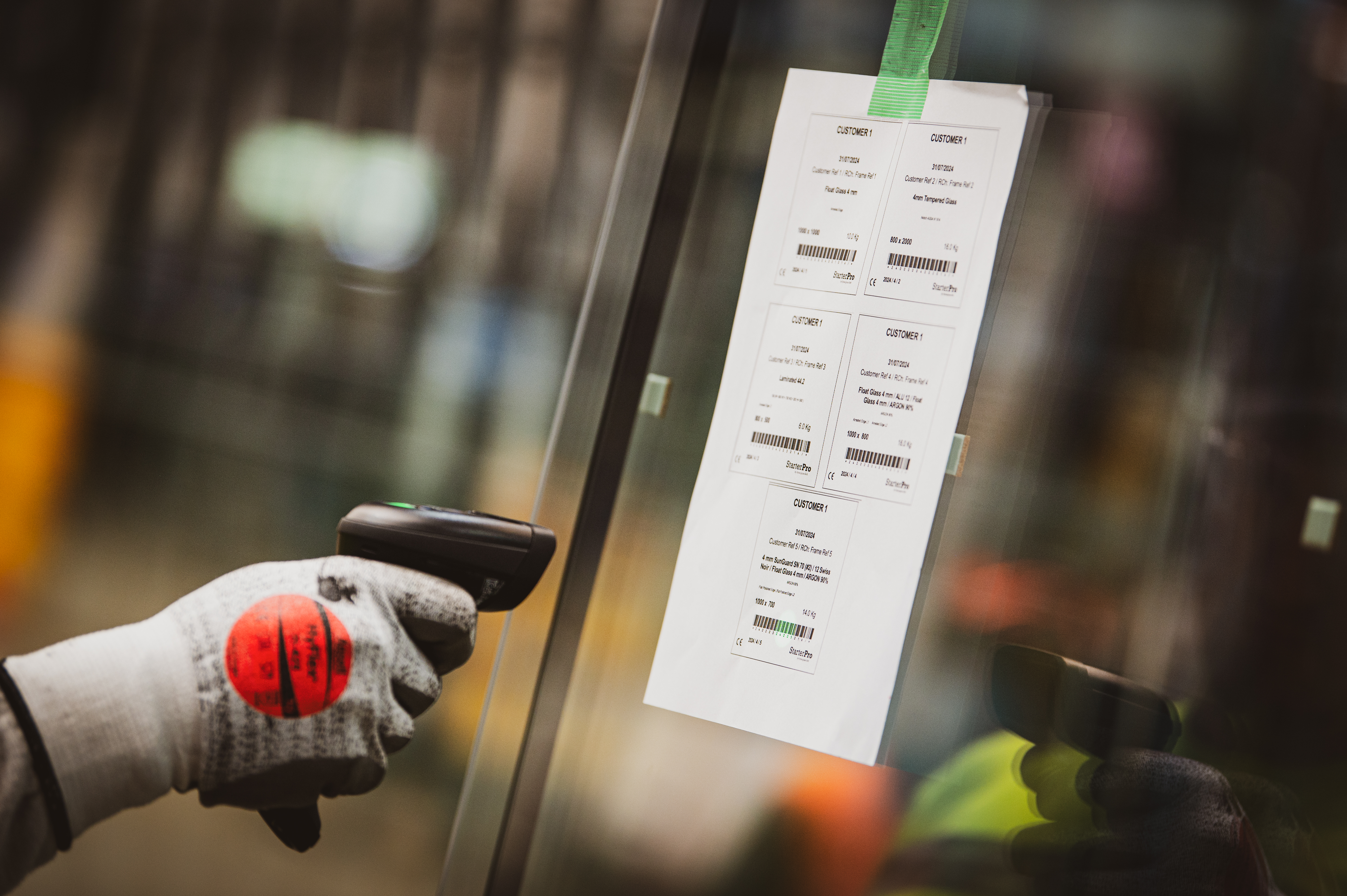You have been running your glass processing business for a while now, and as your operations grow, managing everything efficiently is becoming more challenging. Whether it is tracking inventory, monitoring production, or managing customer orders, you’re juggling tasks that pull you away from focusing on growth. You know it is time for a new system that not only simplifies operations but boosts profitability by eliminating inefficiencies. ERP solutions keep coming up as a way to optimize operations, but here is the dilemma: Should you go with a generic ERP system or invest in one designed specifically for the glass industry?
Having worked with glass processors of all sizes, we understand this challenge well. While generic ERP systems are widely used across industries, they may lack the specific tools you need for glass production. On the other hand, industry-specific ERPs promise tailor-made solutions designed with your unique needs in mind.
By the end of this article, you will clearly understand the differences between generic and industry-specific ERP systems. You will have the tools to know which option best fits your business needs, helping you avoid the costly mistake of investing in a system that does not meet your expectations.
What is an ERP System?
Before we get too deep into comparisons, let’s start with the basics.
An ERP system (Enterprise Resource Planning) is software that helps you manage and automate different business functions in one centralized platform. If you are using different software for sales, accounting, inventory management, production, or customer service, an ERP system brings all of that together into one place.
A lot of glass processing businesses start with different standalone software solutions. Over time, these systems may struggle to integrate smoothly, which can lead to inefficiencies. An ERP system helps get rid of the need for multiple platforms, improving workflow, reducing errors, and enabling real-time data access across all departments. For instance, in a glass business, an ERP can track the entire lifecycle of a glass sheet – from sourcing raw materials to shipping the final product – ensuring everything runs efficiently.
ERP systems can also support regulatory compliance by tracking safety standards and quality control, which is particularly important in industries like glass processing.
Why Choosing the Right ERP Matters
Selecting the right ERP is crucial because not all systems are built equally. Some ERPs are designed to be generic and adaptable to any industry, while others are built from scratch for specific industries, like glass processing.
For example, generic ERP systems like Exact, Microsoft Dynamics, and SAP offer a wide range of features for a variety of industries. They are flexible and customizable, but they may not have the built-in tools required for specific tasks in glass production. On the other hand, industry-specific ERPs such as GlassTrax, FeneVision, and A+W come pre-configured with features tailored to glass processors. These systems include tools for tracking glass inventory, managing complex cutting schedules, and optimizing production workflows from the start.
Customizing generic ERPs to handle these glass-specific workflows can be both time-consuming and expensive. We have seen companies spend thousands adding modules to track specific glass inventories that an industry-specific ERP could manage out of the box.
Making the right choice will affect how well your business operates and grows in the future.
Generic ERP Systems: Off-the-Rack, But Not Always a Perfect Fit
Pros of a Generic ERP:
- Lower upfront cost: Generic ERPs usually cost less because they are designed to be a one-size-fits-all solution. You will probably spend less money upfront.
- Broad functionality: Since they are designed to work across industries, generic ERPs offer a wide range of features that are flexible for many types of businesses.
- Familiarity: Since generic systems are widely used, many employees may already be familiar with them, reducing the learning curve.
These benefits make generic ERPs attractive for businesses with diverse operations or limited upfront budgets. If you are just starting or your glass processing business overlaps with other industries, a generic ERP is a flexible, cost-effective option. But it is important to weigh these short-term advantages against the potential long-term costs of customization.
Cons of a Generic ERP:
- Customization costs: You may save on the upfront cost, but because a generic ERP is not designed for glass processing, you will probably have to spend more on customization. That could mean hiring consultants, investing in additional modules, or dedicating internal resources to make it work for your specific needs.
- Complexity: Generic systems tend to come with lots of features you might never use. This can lead to a confusing, overly complex system that does not help your team but rather confuses them.
- Lack of industry focus: A generic ERP will not understand the specific nuances of glass processing, such as glass cutting, finishing, or handling, leading to inefficiencies.
These challenges show that while a generic ERP may save you money at first, it could end up costing you more in the long run. If your business involves specialized processes – such as managing different types of glass or tracking detailed production workflows – a generic ERP may need a lot of customization, adding complexity and confusion for your team. We have seen companies invest significantly in custom modules to track production stages and manage detailed glass inventories that an industry-specific ERP would have handled from the start, without additional costs.
Industry-Specific ERP Systems: Custom-Made, But Not Without Trade-Offs
Pros of an Industry-Specific ERP:
- Industry expertise and faster implementation: The team behind the system understands your business and your jargon. Unlike integrators like SAP who may not specialize in glass, they work closely with glass processors daily. This hands-on experience also makes the implementation process smoother and faster, meaning you can get up and running more quickly.
- Tailored features: With an industry-specific ERP like Symbiose, you get a system that is pre-configured to meet the unique challenges of the glass industry. From managing glass types to optimizing cutting schedules, the software is designed to make your life easier from day one.
- Less customization required: Unlike generic systems, you won’t need to spend time or money developing custom features. Most of the features you need are already built into the system, saving you from costly and time-consuming adjustments.
- Scalability: Industry-specific systems are designed to grow with you. Symbiose, for example, is modular, so you can add features as your business grows, ensuring the system evolves with your needs.
For glass processors, the immediate benefit of an industry-specific ERP is that it is ready to handle your operations from day one. You save on customization costs and get up and running faster, which is perfect for businesses that want to be efficient. If your operations involve complex workflows, such as cutting and handling various glass types, an industry-specific ERP will make your life easier because it will eliminate many of the setup headaches found with generic systems.
Cons of an Industry-Specific ERP:
- Higher initial cost: Industry-specific ERPs tend to be more expensive upfront because they are specialized. However, this investment often saves money in the long run by reducing the need for customization and increasing operational efficiency.
- Limited to your industry: While this is typically a benefit, it can be a downside if your business plans to diversify into other sectors in the future. The system may not be as flexible outside of glass processing.
The upfront cost of an industry-specific ERP might seem like a lot, but it is worth thinking about the long-term savings. By cutting out the need for lots of customisation, industry-specific ERPs can be more efficient and profitable over time. But if you think your business might move into new areas, it is a good idea to check whether the ERP system you choose can adapt to new industries.
How to Choose the Right ERP for Glass Processing: Key Considerations
Choosing between a generic and industry-specific ERP comes down to your company’s needs. Here are a few questions to ask yourself:
- What are your specific processes?
If your business involves specialized tasks like laminated glass production, Georgian bars management, or complex glass sheet handling, an industry-specific ERP will handle these tasks smoothly from day one. Generic ERPs may not have the flexibility to track such intricate operations without extensive customization. - Do you plan to expand?
As you consider growth, think about how scalable the modular ERP system is. If your business plans to expand into areas such as new types of glass processing (e.g., adding laminated glass or automated production lines), an ERP modularity like Symbiose’s allows you to add features as needed. A generic ERP may not offer the same level of adaptability without significant development work. - What is your budget?
While generic ERPs might appear cheaper upfront, you should not overlook the potential costs of customization, IT support, and lost efficiency when trying to make it fit your glass business needs. An industry-specific ERP like Symbiose might cost more initially, but it can offer greater efficiency and ROI by addressing your exact requirements out of the box.
Which ERP System is Best for Glass Processing? A Final Verdict
While generic ERP systems may seem like an attractive option due to their lower initial costs, they often fall short when it comes to meeting the specific needs of glass processors. Customization can be expensive, and your team may find themselves struggling to adapt the system to your unique processes.
On the other hand, an industry-specific ERP like Symbiose is designed to fit your needs right from the start. It comes with pre-built features tailored to the glass industry, reducing the need for costly customizations and ensuring a smoother, more efficient operation.
Still unsure which ERP system is best for your glass processing business? Getting the right ERP in place early can avoid costly mistakes and help accelerate growth. Contact us at sales@synerglass-soft.com for a personalized assessment. We will help you evaluate your current processes and determine whether Symbiose or another ERP solution is the right fit for you.




